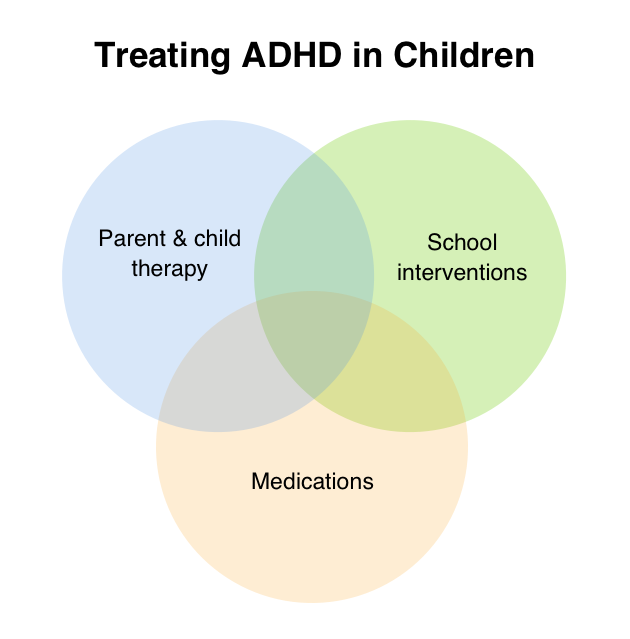The Advantages of Personalized ADHD Treatment Prepare For Better End Results
The execution of individualized ADHD treatment plans has actually arised as a pivotal method in improving therapeutic end results for people affected by this problem (ADHD treatment). By acknowledging the distinct manifestations of ADHD in each individual, these customized treatments promote greater involvement and motivation, inevitably leading to a lot more effective coping approaches.
Comprehending ADHD Variability
Although Attention-Deficit/Hyperactivity Condition (ADHD) is often perceived as a particular problem, its indications can differ considerably among people. Sex distinctions additionally play a role, as males are much more often identified with ADHD and usually display more overt signs, whereas women may provide with much less apparent inattentiveness.
Moreover, people with ADHD might experience a range of psychological and behavior obstacles, such as anxiousness or opposite defiance, that can make complex medical diagnosis and therapy. The communication of these aspects can cause varied experiences of ADHD, demanding a nuanced understanding of the problem. It is additionally worth keeping in mind that ADHD can provide in different ways throughout numerous social contexts, affecting exactly how signs are recognized and dealt with. This understanding highlights the significance of recognizing ADHD as a multifaceted condition, which asks for individualized techniques to therapy that consider the one-of-a-kind demands and experiences of each person.
Secret Components of Customization
Personalized ADHD therapy plans are based in a number of key parts that make sure effective monitoring of the condition. Initially, a detailed assessment is important, entailing standardized score ranges, meetings, and behavior monitorings. This thorough analysis permits clinicians to understand the person's special symptoms, strengths, and obstacles.
Second, the participation of multiple stakeholders, including moms and dads, teachers, and the individual, contributes to a holistic sight of the individual's needs. Collaboration cultivates an encouraging atmosphere that can adjust to the person's context and way of living.
Third, treatment strategies should be versatile and versatile, permitting alterations based upon continuous responses and the individual's developing requirements. This versatility makes it possible for the integration of various restorative techniques, such as behavior treatments, psychoeducation, and drug management.
Furthermore, cultural and contextual aspects have to be considered. Recognizing the individual's background, values, and preferences guarantees that the treatment is appropriate and respectful.
Finally, routine follow-ups and evaluations are vital to check progression and make essential changes. By concentrating on these vital parts, individualized ADHD therapy plans can considerably improve the effectiveness of interventions, leading to improved end results for people with ADHD.
Improved Interaction and Motivation
To effectively advertise boosted interaction and motivation in people with ADHD, it is essential to include approaches that reverberate with their rate of interests and strengths. Individualized therapy plans that align with a person's enthusiasms can lead to raised engagement in restorative activities, cultivating a sense of possession and excitement for the process.
Making use of interactive and innovative methods can also substantially improve inspiration. As an example, incorporating gamification components or real-world applications of skills can make jobs much more appealing and appropriate. This not just catches attention yet likewise reinforces learning via delightful experiences.
Additionally, setting attainable and meaningful goals customized to the individual can boost motivation. When individuals see their progression towards directly significant goals, they are extra likely to continue to be engaged. Routine responses and recognition of achievements can better sustain inspiration, developing a positive comments see loophole that urges continued effort.
Finally, cultivating a supportive atmosphere where people really feel understood and valued can considerably influence their involvement levels. When treatment plans are established collaboratively, including input from the person, they are more probable to really feel spent in their trip, inevitably leading to improved results in handling ADHD.
Improved Coping Approaches
Creating improved coping strategies is important for people with ADHD, as it furnishes them with reliable devices to browse day-to-day obstacles. A personalized treatment strategy enables the recognition of specific coping devices customized to the person's one-of-a-kind demands and conditions - ADHD treatment. Strategies such as mindfulness, time monitoring abilities, and business methods can be integrated into daily routines, fostering a feeling of control and minimizing stress and anxiety
Mindfulness methods, including meditation and deep-breathing workouts, aid people with ADHD focus their attention and regulate their feelings. Time administration techniques, such as utilizing timers or damaging jobs into smaller, convenient actions, can alleviate feelings of bewilder. In addition, organizational tools like organizers and lists can enhance performance and liability.
Long-lasting Positive End Results
Carrying out customized ADHD treatment strategies can result in significant lasting positive end results for individuals. These tailored techniques, which consider unique signs and symptoms, preferences, and life situations, help with more reliable monitoring of ADHD signs over time. By concentrating on the details needs of the individual, these plans boost adherence to therapy methods and foster higher interaction in healing activities.

In addition, dr uday chowdhury psychiatrist individualized treatment strategies can significantly minimize the risk of comorbid problems, such as anxiety and clinical depression, which are typically related to ADHD. Early intervention and regular support assistance individuals develop strength and coping techniques, advertising overall mental wellness.
Inevitably, the long-term positive results of individualized ADHD therapy plans not only enhance the high quality of life for people yet also contribute to their general wellness and success in different life domain names. This all natural approach underscores the significance of personalized treatment in taking care of ADHD properly.
Conclusion
